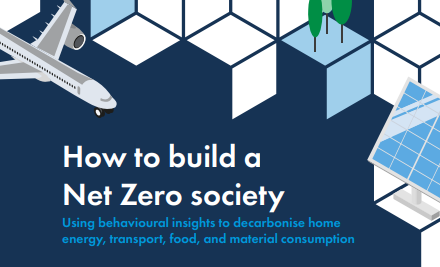Building new energy infrastructure will be critical for delivering net zero but plans are often blocked by public opposition. In an effort to bring local people on-side and speed up the major upgrades needed to the electricity grid, the Chancellor announced new funding in the Autumn statement for residents affected by new electricity infrastructure. People living ‘close’ to new infrastructure will receive up to £1,000 per year off their electricity bills as well as a wider community benefit fund allowing them to support local social projects.
But it’s not clear whether the Chancellor’s plan will work.
Incentive or insult?
On the ground, the initial reaction to these ‘pounds for pylons’ payments hasn’t been resoundingly positive, with residents calling it a ‘bribe’.
This BBC article entitled: Essex pylon corridor compensation plan ‘insulting’, shows a glimpse of the potential conflict yet to come, with residents feeling like they haven’t been listened to and are being fobbed off. Are incentives like these asking people to put a price on their principles, or a pragmatic solution to build our critical national infrastructure?
We have seen this happen before in other infrastructure projects. Britain’s mission to find a local community to host a geological nuclear waste disposal site echoes many of the same challenges. Despite a lengthy engagement process and large sums of compensation offered, the economic incentive produced the opposite effect – local communities turned against the plan, signalling that the money felt like a deal for something that’s negative and unwanted.
What can we learn from these experiences?
- Avoid putting a price on it. Monetary incentives can backfire by creating cognitive dissonance (if you are paying me for something, then I infer it is a bad thing) and crowding out intrinsic and prosocial motivations (including the national benefits of the infrastructure). Monetary incentives can also overshadow other parts of an offer: community benefits were also announced (and can be better at increasing planning support), but all the focus has been on the tangible monetary offer for individuals. Even where individual incentives are offered, they can be better designed. Evidence on green home building finds that non-monetary incentives (such as fast-lane planning permission) are more effective. It’s also likely that offering local residents free green electricity from their local wind turbine for 5 months would be more attractive than the proposed £1,000 discount to their bills over 10 years, because it reduces the salience of the monetary value, and leverages our disproportionate preference for free offers.
- Bring vocal support into the open. Our attitudes and behaviours are strongly shaped by what we believe other people think and do. Making existing support visible will foster more public support and, ultimately, create a mandate for development. An example where this works well is Octopus’ fan club: anyone can sign-up to show they would like a local wind turbine (and accompanying discount), which encourages supporters to speak-up and helps identify areas where support is high. This is a world away from the current planning process, which instead of galvanising support, almost encourages rejection by asking for reasons why you want to object.
- A wider public conversation to explain the energy transition. We treat NIMBYs as if their views are fixed, but in reality they are often more open, particularly as they learn more about the transition and technologies. When the public think of green power they might picture a wind turbine, or a solar panel on a roof but not the miles of high voltage power cables, or new electricity substations needed for the green transition. Explaining these realities can help to bring people on-side, and we shouldn’t discount the idea that public opinion can change. Information can help not just to persuade but also foster familiarity – itself a powerful driver of sentiment.
Delivering net zero depends on substantial social and behavioural change
Although upgrading the electricity grid is just one small part of this huge public engagement challenge, we will need to bring the public with us on the whole net zero journey so we can avoid a situation where people feel change is being forced upon them. This is why the role and design of incentives is so important, and why we should always consider the behavioural implications.
For more information on how behavioural insights can be used to help us decarbonise, check out our flagship report: How to build a Net Zero society.




